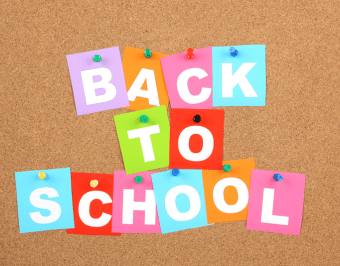
The summer is officially over, the school year has begun, and Curriculum Night — sometimes called Back-to-School Night — is up next. With so many events on the school calendar, it can be confusing to keep them all straight. That’s why Curriculum Night stands out as the kick-off, the first official invitation for families to attend together. This annual fall event takes place in elementary and high schools across public, Catholic, and independent schools in Canada. It’s often the first opportunity to step inside the school for the new school year, meet teachers face-to-face, and see the environment where your child spends their day. At Teachers on Call, our in-home and online tutoring service has been helping families succeed since 1984, giving us the experience to explain the significance of school events like Curriculum Night. Attending sets the tone for a successful year ahead, which is why this blog will cover everything parents need to know to feel prepared and confident.
Curriculum Night is designed to provide families with the big picture. Teachers highlight how the provincial curriculum will be covered throughout the year, including what students will study in core subjects like English, French, math, and science, along with classroom routines, homework expectations, assessment methods, and communication strategies. Entire families are welcome, and many students enjoy showing off their classroom to parents, guardians, and siblings. To make the evening more accessible, some schools even provide free babysitting services for younger children, allowing parents to focus on the presentations while still enjoying the event together as a family. Whether your child is just beginning elementary school or navigating the demands of high school, Curriculum Night offers valuable insights and a chance to start building strong connections with teachers and the school community. Parents often have many questions about Curriculum Night — what it is, when it happens, and why it matters — and since our in-home and online tutors are elementary and high school teachers, we have the answers.

What Is Curriculum Night?
It’s the most basic and fundamental question parents have — what exactly is Curriculum Night? Curriculum Night — sometimes called Back-to-School Night — is an annual fall event held in elementary and secondary schools across public, Catholic, and independent schools. It’s one of the first chances for families to step inside the classroom, meet their child’s teacher(s), and connect with the school community. Rather than a casual drop-in, the evening usually follows a set agenda where parents hear a presentation about the year ahead, tour the classroom, and meet other families. The goal is to give parents the big picture: how the provincial curriculum will be covered, what subjects will be taught, how homework and assessments will be handled, and the best ways to stay in touch with the teacher. Some schools also include short presentations from partners in education, such as the school council or a principal’s remarks, and may even offer light refreshments to make the evening more welcoming. By the end of the night, families are meant to leave with a clear sense of what the school year will look like and how to support their child along the way.
How Is Curriculum Night Different from an Open House or Parent-Teacher Conference?
While it may feel like an open house of sorts, there is a clear structure to Curriculum Night that sets it apart. It is very different from an official Open House or Information Night, which typically take place between October and January and are designed to help families explore a school more broadly, decide whether it is the right fit to attend, and learn about programs before enrolling. These events are usually attended the year prior to a student starting at the school. For example, it is very popular for grade 8 students to tour multiple high schools in advance, especially if they are considering a specialized program such as International Baccalaureate (IB), Advanced Placement (AP), Arts, Exceptional Athletes, or STEM. Curriculum Night, by contrast, happens once your child is already enrolled and is meant to provide the roadmap for the academic year ahead.
Curriculum Night is also not to be confused with the Parent/Guardian–Teacher Conference Night. Interviews, which focus on your child’s individual progress, occur later in the fall. During Curriculum Night, teachers present to parents as a group, often sharing their long-range plans, daily schedule, classroom expectations, and communication methods — rather than discussing individual student performance. Attending helps parents understand how learning will unfold and how they can support their child. It may also provide families with a useful gauge of whether additional support, such as in-home or online tutoring, would be helpful during the year.
Why Should Parents Attend Curriculum Night?
If you’re wondering, “Is Curriculum Night worth attending?” the answer is absolutely yes. Attending not only shows your child that school is important, but it also sends a strong message to your child’s teacher that you value their role and are invested in building a positive relationship from the very start. Parents gain a clear overview of curriculum expectations, homework policies, assessment approaches, and communication methods. Teachers often also share important details about technology usage and expectations — such as how online platforms, digital tools, or classroom apps will be used to support learning at home and in school.
It’s also an excellent opportunity for parents who are interested in getting more involved at school. Many schools use Curriculum Night to share information about volunteer initiatives, school council, and other ways to contribute to the school community. For parents, it’s a chance to network with other families, ask general questions, and begin forming connections that can support both you and your child throughout the year. At Teachers on Call, we’ve seen how students of all ages thrive when parents, teachers, and tutors work together as a team. Curriculum Night is the first step in creating that partnership.

Where to Find Information About Curriculum Night
Families often ask, “How do I know when Curriculum Night is scheduled for my child’s school?” The answer is that each school shares information a little differently. Dates and times are usually communicated through an official letter or flyer sent home, newsletters, email reminders, classroom apps, the school’s official website, bulletin boards outside the office, and school social media accounts. If you’re unsure, the best approach is to contact your child’s teacher or the school office directly. Adding these events to your family calendar is a simple way to stay on top of them — and for more tips on staying organized, see our latest article on time management by our president, Joanne Sallay, published in the Costco Connection read here.
When Does Curriculum Night Take Place?
Curriculum Night is typically an annual fall event, usually scheduled in September or October. The exact timing depends on the school — some hold it as early as the second week back, while others wait until mid-October. It tends to be in the evening on a weeknight Monday to Thursday, as Fridays and weekends tend to be avoided. What’s consistent is that it always happens before progress report cards are sent home and in advance of Parent-Teacher Conferences. This way, families receive the big picture of the year before sitting down to discuss individual student progress. At Teachers on Call, we remind families that attending Curriculum Night helps you stay informed and creates smoother communication with your child’s educators.

What to Expect at Curriculum Night
When parents search “What happens at Curriculum Night?” they’re looking for a clear idea of what’s ahead. Most schools include a teacher-led presentation highlighting the curriculum, classroom routines, grading policies, homework expectations, and communication methods. To accommodate families with more than one child, teachers often present the same session twice so parents can rotate between classrooms. Families may also receive handouts or digital resources by email afterwards for easy reference at home. There is sometimes babysitting services offered to parents.
In some schools, Curriculum Night is paired with a school-wide social event, such as a welcome-back BBQ or casual meet-and-greet. These evenings not only help families connect with teachers but also provide a chance to build community. Occasionally, schools incorporate a community giving opportunity — for example, inviting families to bring an item for the local food bank while everyone is gathered. While Curriculum Night isn’t the time for detailed conversations about your child’s individual progress, it’s the best way to see the classroom in action, meet other parents, and understand what a typical day looks like.
How Parents Can Prepare for Curriculum Night
To make Curriculum Night meaningful, preparation helps. The first step is to mark the date in your family calendar — fall is a busy time of year, and Curriculum Night should be a priority. Parents should also review any teacher or principal communications sent home in advance, such as newsletters or introductory letters, as this makes it easier to follow along during presentations. Come prepared with general questions about homework, assessment, or communication, but save personal concerns for a private conference. Bringing a notebook or digital device to take notes to ensure you capture key details. You may also want to bring a folder, since it’s common to receive several loose handouts, and this makes it easier to keep everything together. At Teachers on Call, our online and in-home tutoring service encourages families to think about their child’s learning needs ahead of time. That way, you’ll know what information will be most useful for supporting them at home.
Tips to Make the Most of Curriculum Night
Parents often Google “Curriculum Night tips,” so here are a few essentials: arrive a few minutes early, introduce yourself to the teacher, and connect with other parents. Collect handouts and note how the teacher prefers to communicate, whether through phone calls, e-mail, or scheduling an in-person meeting. Keep your questions broad and relevant to the whole class. It’s also important to budget enough time if you have more than one teacher to visit, whether between subjects or for multiple children. For example, at the elementary level, if you have a child with learning challenges, you may want to attend both the homeroom teacher presentation and the Special Education teacher session — for example if your child is participating in a specialized reading intervention program such as Empower™ Reading through SickKids. Showing interest and support builds rapport and lays the foundation for ongoing collaboration. At Teachers on Call, our in-person and online tutoring team knows how valuable it is when parents maintain a strong school–home connection — it helps tutoring sessions align seamlessly with classroom expectations and the provincial curriculum.

What If Families Can’t Attend Curriculum Night?
Sometimes busy schedules or family commitments mean parents can’t make it to Curriculum Night. If that happens, don’t worry — there will be other opportunities to connect with the school throughout the year. Be sure to reach out to your child’s teacher with any questions, and to request a copy of the digital presentation or resources that were shared. It’s also a good idea to connect with other families who did attend so you can stay on top of important information and updates.
After Curriculum Night: What Comes Next?
Many families ask, “What should we do after Curriculum Night?” The key is follow-through. Discuss what you learned together as a family with your child to plan ahead for the school year. Store the teacher’s contact details for future communication. If you realize your child may need extra academic support in certain subjects, such as Chemistry, Calculus, or Advanced Functions, explore resources early — whether school-based help or supplemental tutoring. Curriculum Night is the first chapter of the school year; keeping communication open ensures students continue to feel supported and confident as the months progress.
Final Takeaway for Families
Curriculum Night is the starting point of your child’s school year, offering families a clear roadmap of what’s ahead. Attending gives you valuable insight into the provincial curriculum, clarifies classroom expectations, and opens the door to building strong professional relationships with teachers. For families, it serves as the foundation of an effective school–home partnership.
At Teachers on Call, we are proud to have been tutoring students since 1984 in all subjects and grades from kindergarten to grade 12 across Ontario and Canada. Over the years, we’ve seen firsthand that both elementary and high school students flourish when parents stay connected from the very beginning. By making Curriculum Night a priority, you’re setting your child up for a year filled with growth, confidence, and success.
Related Articles View All
Explore The Friendly City: Doors Open Belleville Showcases 15 Sites of History & Culture | Sept 13, 2025
On September 13, 2025, Doors Open Belleville invites families to explore 15 historic and cultural sites across the “Friendly City.” From museums and community hubs to hands-on activities, this free event brings Belleville’s heritage to life for all ages.
How Poetry Supports Youth Mental Health: Student Author Charlotte Collins and "The Art of Moving On"
Poetry can be a powerful outlet for self-expression and healing, especially for young people navigating the challenges of growing up. In her debut collection "The Art of Moving On", Toronto student author Charlotte Collins transforms her experiences with depression, bullying, and grief into poems that illuminate resilience, identity, and hope.

